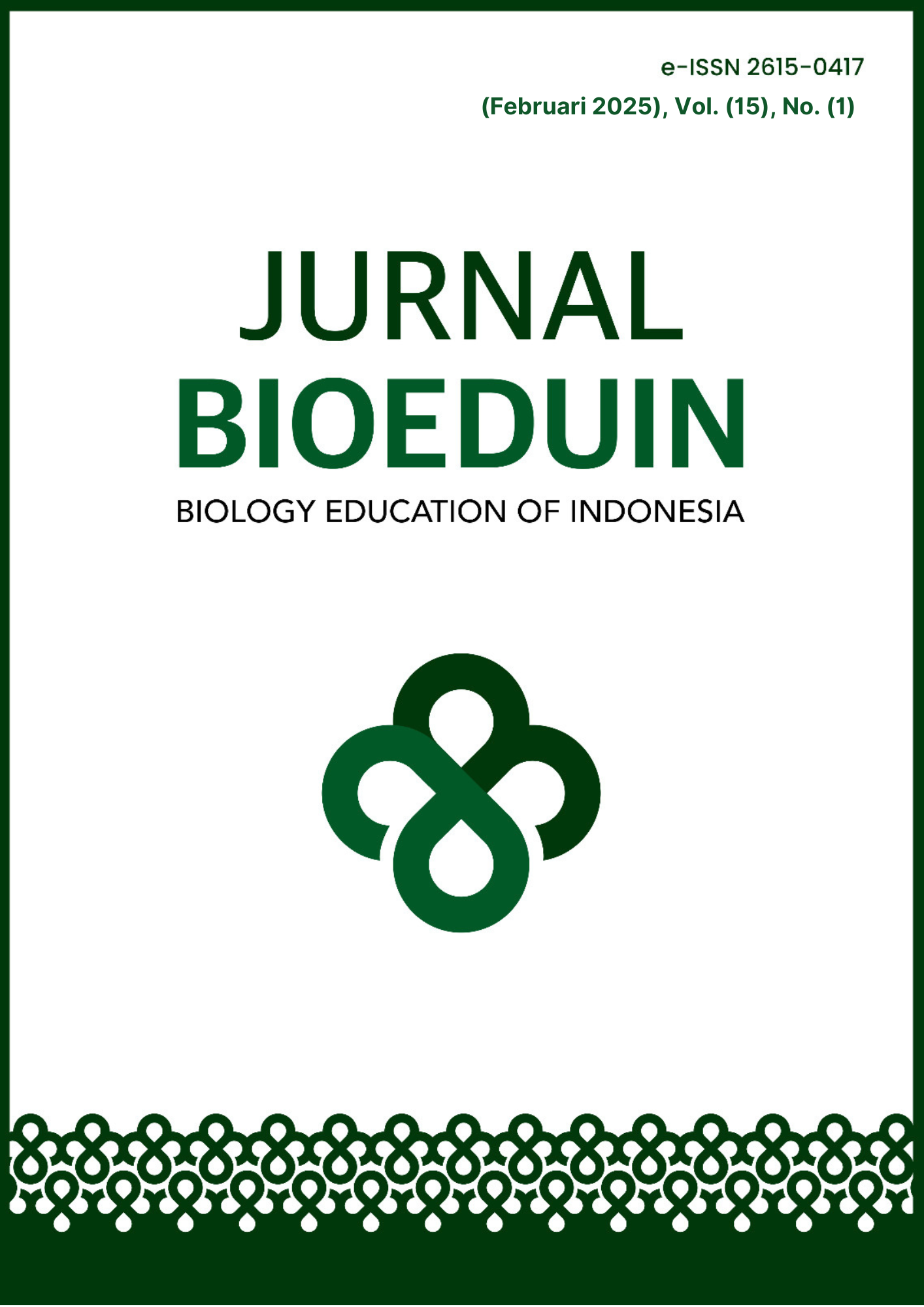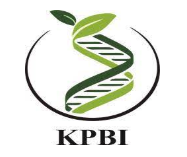Eligibility of E-Module Biology Material Cell-Assisted Flipping Book
DOI:
https://doi.org/10.15575/bioeduin.v15i1.43643Keywords:
Biology e-module, flipping book, cell materialAbstract
This study aims to produce an e-module of biology teaching materials based on flipping books on cell material for grade XI high school. This study is a research and development (R&D) research with the ADDIE model (analysis, design, development, implementation, and evaluation), but it is limited to the development stage. This e-module is made using the flipping book application. The sampling technique in this study is purposive sampling. The sample used in this study was 45 high school students. The results of this study indicate that the quality of the validity of the e-module of teaching materials based on the results of the Validation of learning experts falls into the very valid category with an average of 99.06% (very valid), the results of the Validation of material experts get an average of 94.44% (very valid), the results of the Validation of media experts get an average of 92.98% (very valid), and the results of the Validation by three biology teachers get an average percentage of 95.55% (very valid). The trial results showed that students earned an average of 92.07% (very good); based on several categories, the developed e-module of learning is very valid and can be used as teaching materials to help students' learning process.
Downloads
Published
How to Cite
Issue
Section
Citation Check
License
Copyright (c) 2025 Mellisa Mellisa, Delma Saputri

This work is licensed under a Creative Commons Attribution-ShareAlike 4.0 International License.
Authors who publish in Jurnal BIOEDUIN agree to the following terms:
- Authors retain copyright and grant the journal right of first publication with the work simultaneously licensed under a Attribution-ShareAlike 4.0 International (CC BY-SA 4.0) License that allows others to share the work with an acknowledgment of the work's authorship and initial publication in this journal.
- Authors are able to enter into separate, additional contractual arrangements for the non-exclusive distribution of the journal's published version of the work (e.g., post it to an institutional repository or publish it in a book), with an acknowledgment of its initial publication in this journal.
- Authors are permitted and encouraged to post their work online (e.g., in institutional repositories or on their website) prior to and during the submission process, as it can lead to productive exchanges, as well as earlier and greater citation of published work (See The Effect of Open Access).









